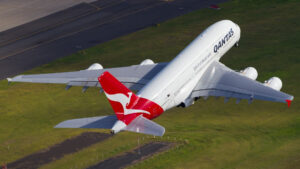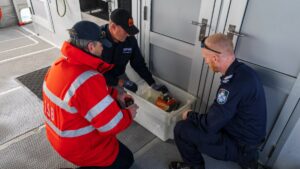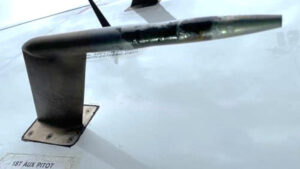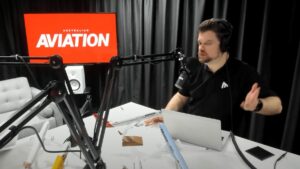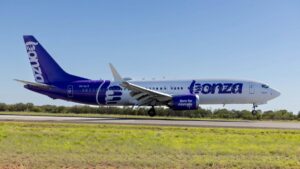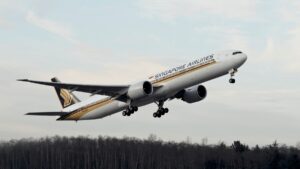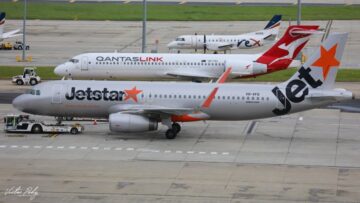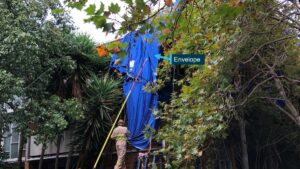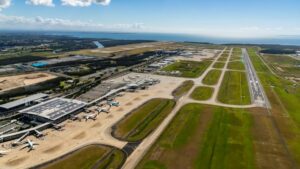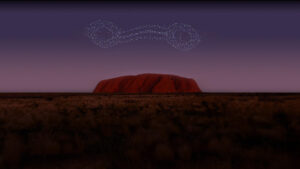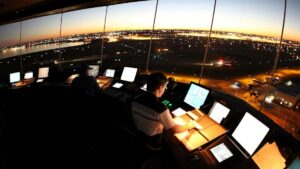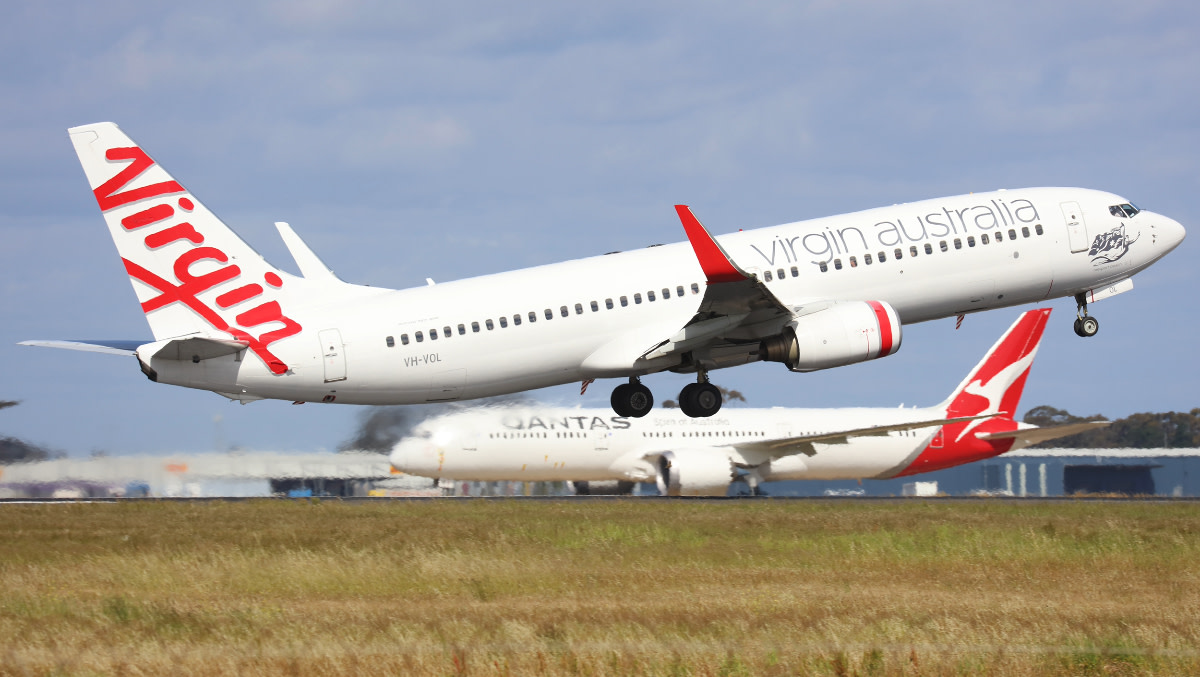
The head of the Australian Airports Association (AAA) has warned that the Qantas-Virgin duopoly will be difficult to break up, with 95 per cent of the market share between the two groups.
Speaking to the House Standing Committee on Economics’ inquiry into promoting economic dynamism, competition and business formation, AAA CEO James Goodwin noted that Qantas and Jetstar together have a 66 per cent share of the domestic market, with Virgin at 29 per cent.
This has led to the market acting in a “very coordinated” way, he said, making it difficult for new competitors such as Rex and Bonza to gain a foothold and harming consumers in the process.
“It becomes very cosy and comfortable, to put it that way, that there is no need to necessarily do really anything against the law because it is just so comfortable,” he said.
“It also means that regulators and governments generally might also find it increasingly difficult to try and intervene as well because the market becomes so reliant on the dominant players.
“Customers and the passengers at the moment are victims of this duopoly. What we see are those high air fares that people are just needing to pay.”
In a separate statement, Goodwin called the aviation market “alarmingly concentrated”, and said the Government should be supporting other existing airlines to expand their services.
“This concentration has led to significant competition issues, including rising airfares, lower reliability, and customer service concerns,” he said.
PROMOTED CONTENT
“The ACCC’s June 2023 report into Airline Competition in Australia confirms that airfares have soared above pre-pandemic levels, leaving travellers paying more for less.
“The AAA is continuing its calls on the Federal Government for the ACCC to restart its quarterly Airline Monitoring Report, after the monitoring ended in June. This will go some way to holding airlines to the same level of scrutiny as airports.”
Goodwin’s intervention echoes statements by former Productivity Commission head Peter Harris in July, who told the inquiry Australia is large enough to support more carriers and that the 80/20 rule at Sydney Airport – which allows an airline to keep a take-off slot indefinitely as long as they use it 80 per cent of the time – should be reset.
“I’m pretty sure that the Sydney–Melbourne corridor is the second or maybe the third largest utilised aviation corridor in the world. You’ve got such an intense use, yet to say it can only support two airlines seems to me to be the height of absurdity,” he said, as reported by The Australian Financial Review.
“I would think we could easily justify more than two airlines. And the important question then, as we know, for competition is the ability to enter reasonably, at a reasonably low set cost, and this comes back to the question of slots.”
In its own submission to the inquiry, Sydney Airport said the 80-20 rule should be changed to 95-5.
- SEO Powered Content & PR Distribution. Get Amplified Today.
- PlatoData.Network Vertical Generative Ai. Empower Yourself. Access Here.
- PlatoAiStream. Web3 Intelligence. Knowledge Amplified. Access Here.
- PlatoESG. Automotive / EVs, Carbon, CleanTech, Energy, Environment, Solar, Waste Management. Access Here.
- PlatoHealth. Biotech and Clinical Trials Intelligence. Access Here.
- ChartPrime. Elevate your Trading Game with ChartPrime. Access Here.
- BlockOffsets. Modernizing Environmental Offset Ownership. Access Here.
- Source: https://australianaviation.com.au/2023/08/airports-chief-says-qantas-virgin-duopoly-will-be-hard-to-crack/
- :has
- :is
- $UP
- 1
- 2023
- 66
- 80
- a
- AAA
- ability
- above
- acting
- After
- against
- AIR
- airline
- Airlines
- airport
- Airports
- allows
- also
- an
- and
- anything
- ARE
- AS
- Association
- At
- Australia
- Australian
- aviation
- back
- BE
- because
- becomes
- BEST
- between
- Break
- business
- by
- called
- Calls
- CAN
- carriers
- ceo
- changed
- chief
- COM
- comes
- comfortable
- commission
- committee
- competition
- competitors
- concentration
- Concerns
- Consumers
- continuing
- Cost
- could
- crack
- customer
- Customer Service
- difficult
- do
- Domestic
- dominant
- easily
- echoes
- Economic
- enough
- Enter
- existing
- Expand
- Federal
- Federal government
- financial
- Find
- For
- formation
- Former
- Gain
- generally
- Go
- Government
- Governments
- Group’s
- Hard
- harming
- Have
- he
- head
- height
- High
- holding
- House
- HTTPS
- important
- in
- Including
- increasingly
- inquiry
- intervene
- intervention
- into
- issues
- IT
- ITS
- james
- jpg
- July
- june
- just
- Keep
- Know
- large
- largest
- Law
- leaving
- Led
- less
- Level
- levels
- Long
- Low
- lower
- Making
- Market
- market share
- max-width
- maybe
- me
- means
- might
- moment
- monitoring
- more
- necessarily
- Need
- needing
- New
- no
- noted
- of
- on
- only
- or
- Other
- Pay
- paying
- People
- per
- Peter
- plato
- Plato Data Intelligence
- PlatoData
- players
- pretty
- process
- productivity
- promoting
- put
- question
- really
- Regulators
- reliability
- report
- rising
- Rule
- Said
- same
- say
- says
- scrutiny
- Second
- see
- seems
- separate
- service
- Services
- set
- Share
- shot
- should
- significant
- slot
- slots
- So
- soared
- some
- Statement
- statements
- submission
- such
- support
- Supporting
- sure
- sydney
- than
- that
- The
- the Law
- the world
- their
- then
- There.
- they
- think
- Third
- this
- those
- time
- to
- together
- try
- two
- use
- very
- victims
- Virgin
- Way..
- we
- WELL
- What
- which
- WHO
- will
- with
- world
- would
- yet
- zephyrnet

